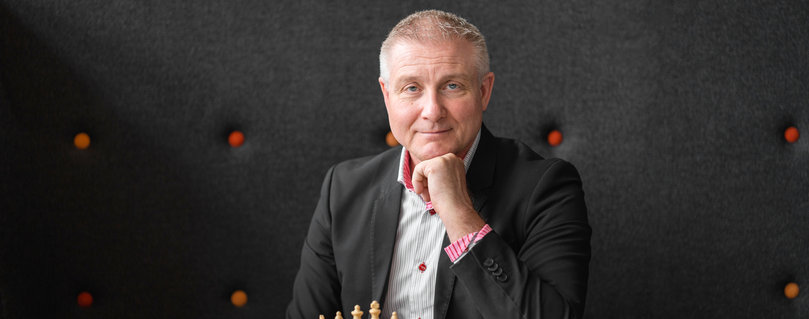A leader in strategic sustainable development

BTH has internationally recognised research and education that help companies, municipalities and other organisations to contribute to society’s transition to sustainability in ways that strengthen the organisations both in the short and long term.
To be able to be strategic, it is necessary to know what you want to achieve. Thus, to be able to be strategic about sustainability, you need to know what sustainability is. However, to define sustainability on a detailed level is both unwise and unreasonable. There are many possible sustainable futures. BTH researchers therefore work with a principled definition.
– Compare with chess, says Professor Göran Broman, and elaborates:
– In chess, the aim is to achieve checkmate. That is defined by four principles: the King is threatened, cannot be moved away from the threat, cannot be protected, and the threat cannot be eliminated. Within this frame, checkmate can take detailed shape in numerous ways, just as there are numerous paths to get there. We work with science-based principles for sustainability – what must apply to all possible sustainable futures, no matter what they look like in detail – and with associated methods and tools for companies, municipalities and other organisations to find smart development paths.
– Political decisions are important, but a large part of the necessary, concrete work to achieve change must be done at the organisational level, argues Göran Broman, and continues:
– The business sector, for instance, is an enormous force for change and more and more companies are realising that it is in their self-interest to be proactive for sustainability. Business leaders need to be able to lead so that their company contributes to the transition of society as a whole in ways that also strengthen their own company. Then the company gains benefits for itself, and also becomes a good example that spurs others, and a positive domino effect that boosts the whole societal transition is created.
The research is conducted in close collaboration with external partners and has influenced many decisions regarding investments, product development and business development, both directly in the collaborations and through the methodology that is developed and made widely available. For example, the researchers are working closely with Lindéngruppen, and within that collaboration, a PhD student project is carried out with a focus on how companies can best mobilise, empower and continuously support all employees to be change agents for sustainable business.
The research results are also disseminated through education programmes and courses. BTH offers, for example, an international Master’s programme in Strategic Leadership towards Sustainability that has so far attracted more than 800 students from more than 90 countries.
– Students, employers and academics at other higher education institutions say they don’t know of any other programme like this elsewhere in the world. The strategic, structured and holistic approach to sustainability, combined with how transformative leadership can engage people to want to contribute to change, is unique and it attracts students from all over the world to our small town in the cold north, concludes Göran Broman.
5 October 2023